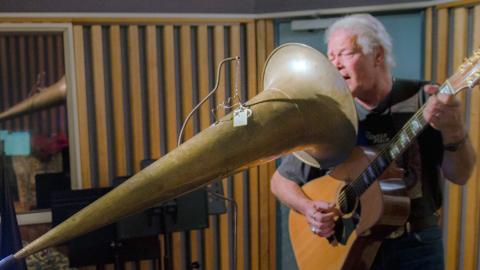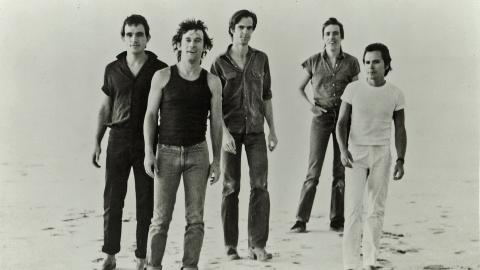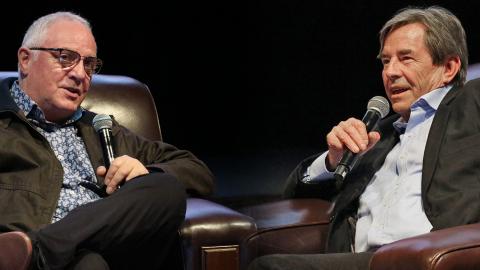
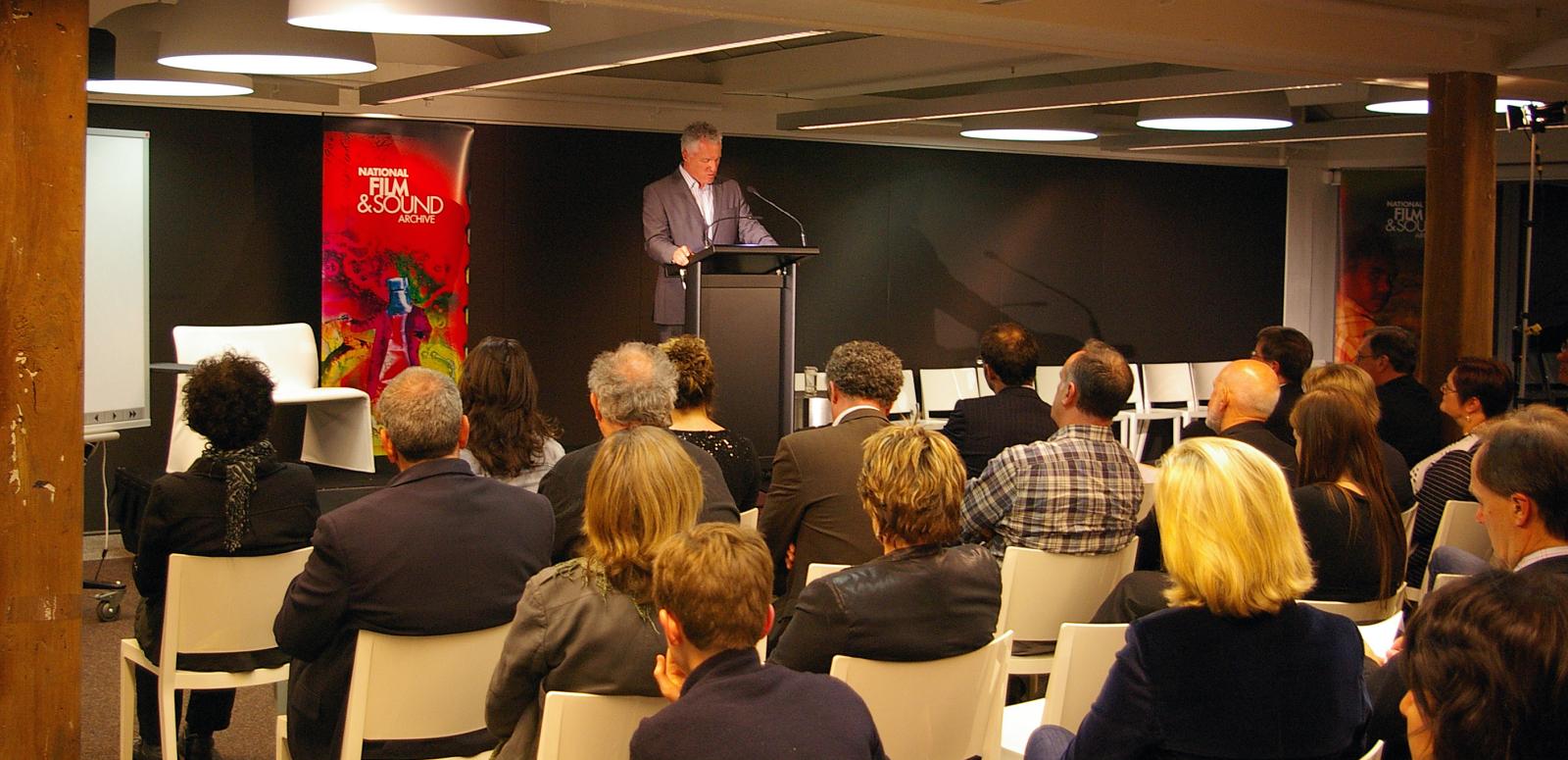
Warren Fahey: The future of music
Warren Fahey AM, founder of Larrikin Records, provides a personal perspective on the NFSA’s recent Thomas Rome Lecture given by Ed St John.
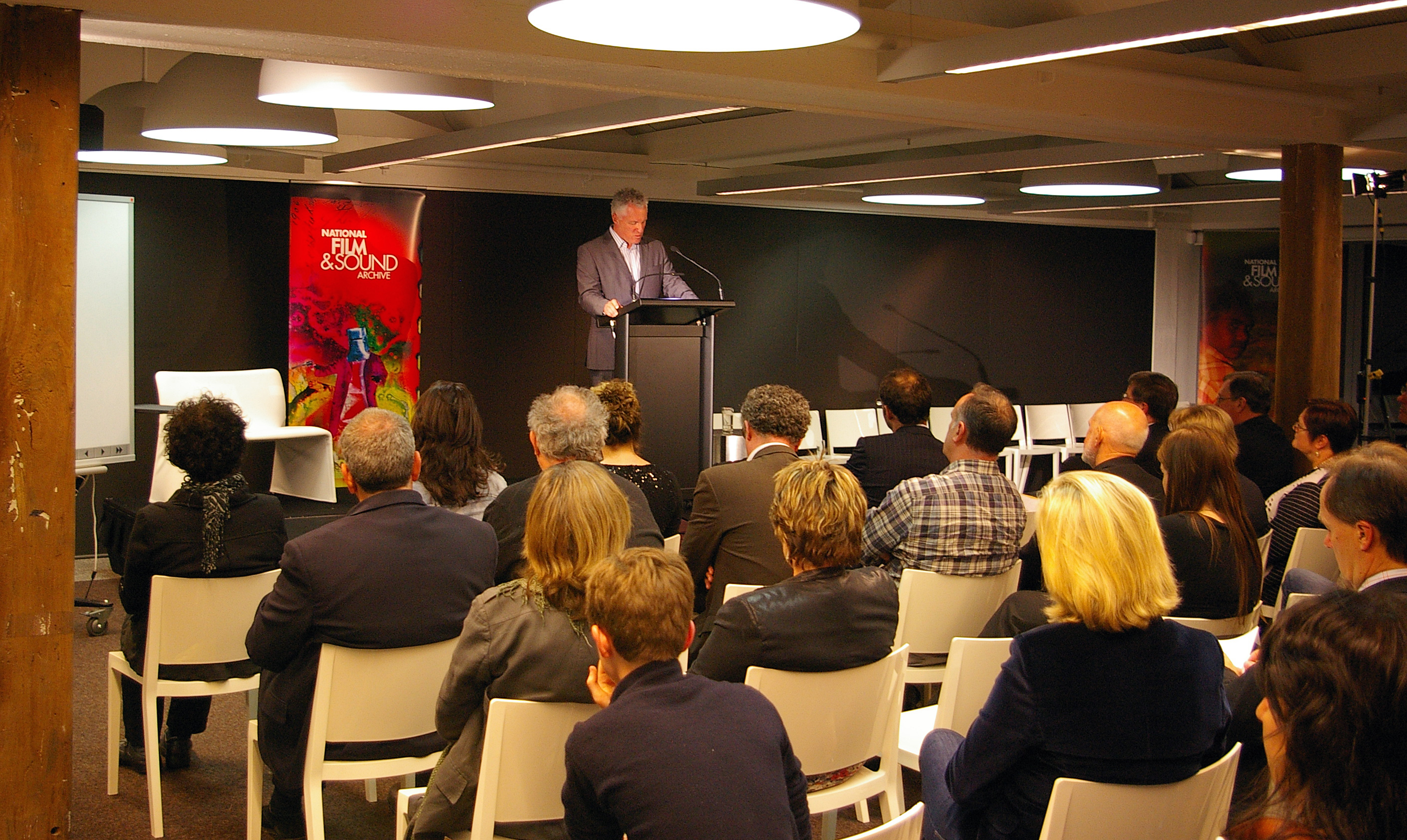
Ed St John’s talk for the 2010 [p[Thomas Rome lecture]] was illuminating and peppered with flashing warning signs. Music is a very resilient little devil but the record industry, or at least its traditional sound carrier systems, appear to be at death’s door. Digital knows no boundaries and luddites are best advised to give their CD collections away, just as vinyl collectors did last century. In Ed St John’s words, the CD is going to disappear, and very soon.
Personally, I have no attachment to any sound carrier. I grew up with a wind-up gramophone, followed by a Pye automatic record player; I saw the birth of the LP, cassette, quadrophonic cassette, DAT, mini disc and, of course, the CD player. I no longer have a radio in the house as the computer serves this task extremely well, particularly with podcasting, and my Iphone is loaded with my music and recorded books.
The world has changed but music making is essentially the same and so is the musical diet we all consume, except now there is so much variety and far less musical snobbery. St John, a thirty-something-year veteran of the local record industry, succinctly put ARIA’s case rather than of Warner Music where, until last week, he was President and CEO. In his presentation he pointed to the fact that Australia is a relatively small country and has particular problems in encouraging the industry super sellers, which, apparently, the industry needs to drive its overall business.
I have never been too impressed with this aspect of the industry – the need for sound-alike, super selling acts that are often over-promoted and under-talented pop and rock artists. St John used Cold Chisel as his barometer, a success story that no one can deny, but I am more interested in the other, more specialist and unusual, artist-driven end of the musical spectrum. This music, being closer to the artists, usually doesn’t need the ‘industry’ to survive and thrive and, as we have seen, can be successful both financially and artistically by using new technology, particularly social network sites like YouTube and Facebook.
This isn’t to say the normal record industry doesn’t do a good job, just that their taste is dubious. The fact that television reality shows like Australian Idol, Australia’s Got Talent and now The X Factor, to name only a handful of these dreadful productions, have supplied the industry with its necessary super sellers is evidence of a certain amount of predictability and dumbing down. Maybe the industry has advanced its own demise by this lack of taste?
Ed St John made a passionate and believable plea for more government assistance to the contemporary music industry. I can’t argue with this and somehow feel that the balance of arts funding – especially the disproportionate amount allocated to what is described as the ‘fine arts’ and ‘major performance companies’ – is now at the point of ridiculousness.
He also made the point, one which ARIA has been jumping up and down about for as long as I have been in the industry, that the money flowing from commercial radio airplay is unfair to the producers, artists and songwriters. He is right about this and I was encouraged to hear that ARIA, under his Chairmanship, has instigated a Supreme Court challenge to increase the percentage. That fact remains that the majority of Australian musicians, songwriters and performers do not make a basic wage – this is something we all need to correct. We cannot afford to be musically dumbed down any further.
Warren Fahey AM
The National Film and Sound Archive of Australia acknowledges Australia’s Aboriginal and Torres Strait Islander peoples as the Traditional Custodians of the land on which we work and live and gives respect to their Elders both past and present.
